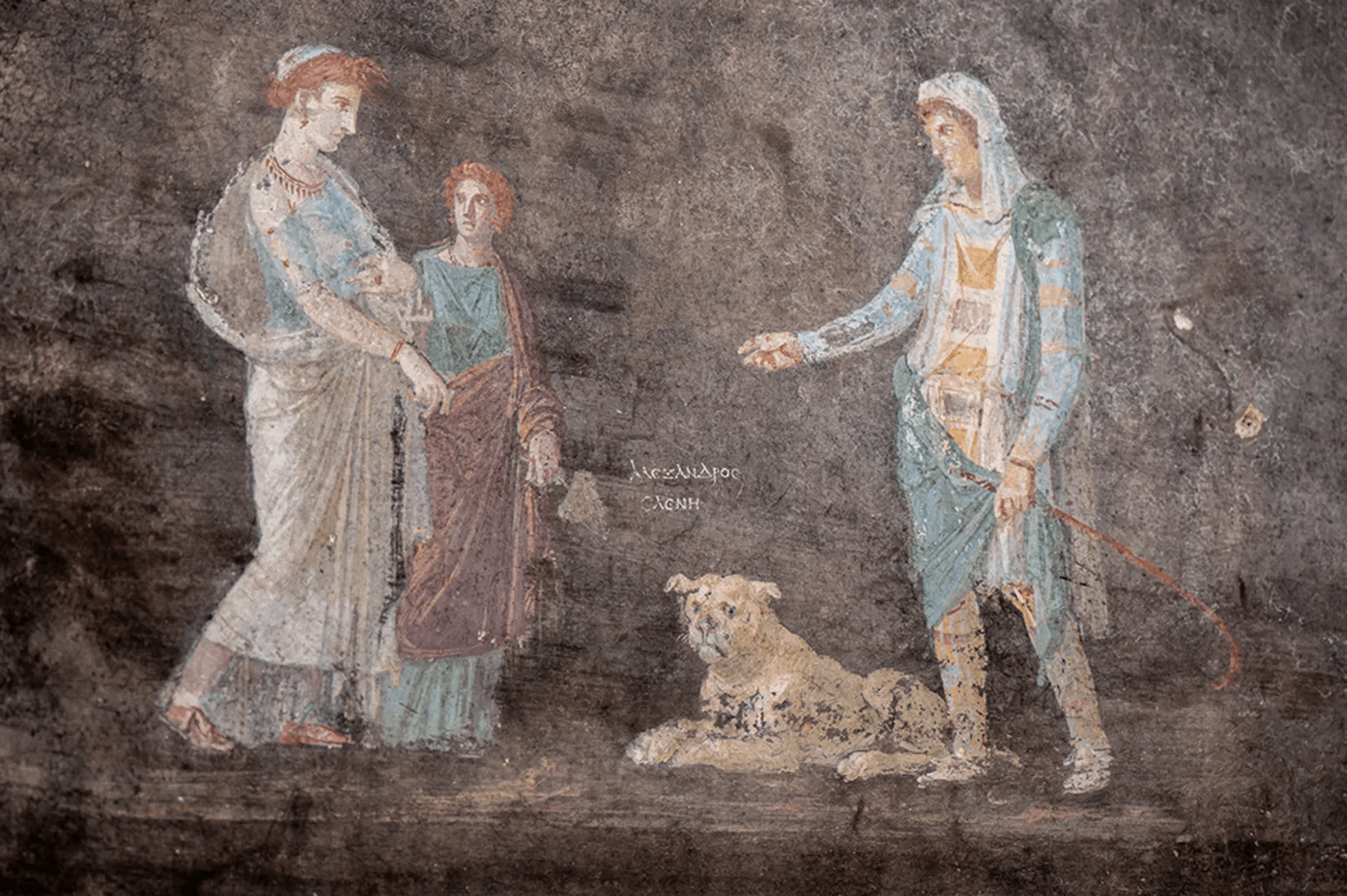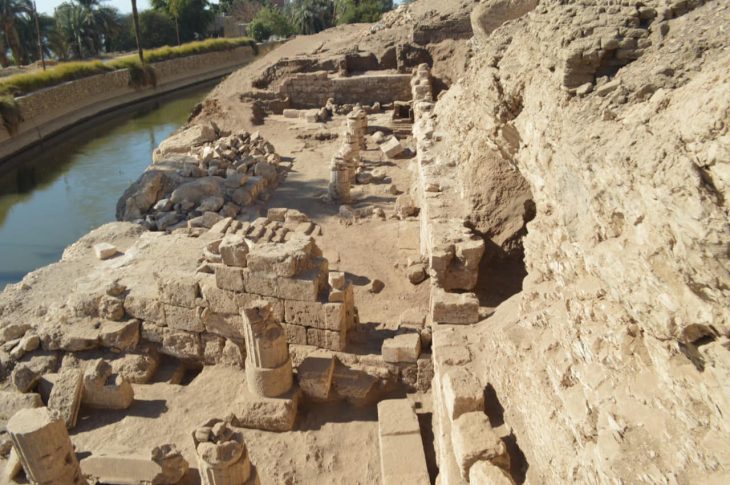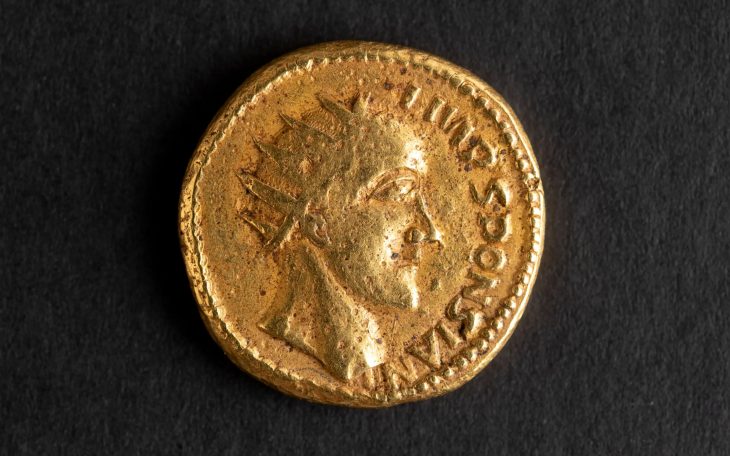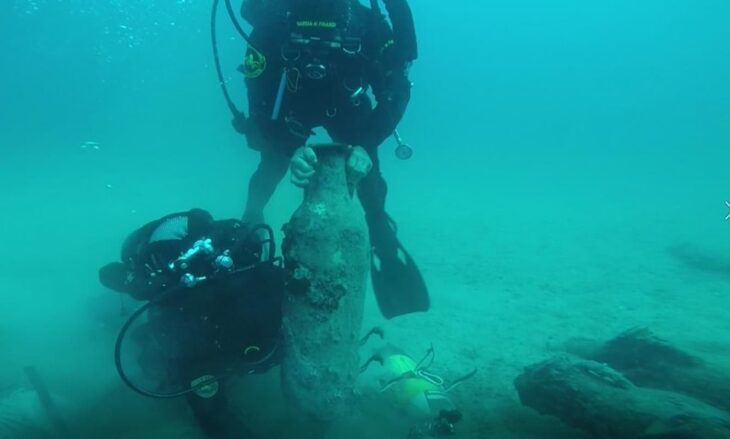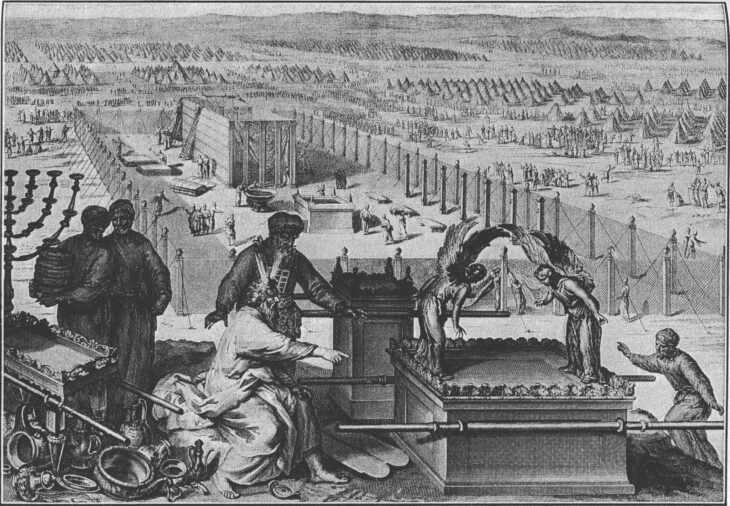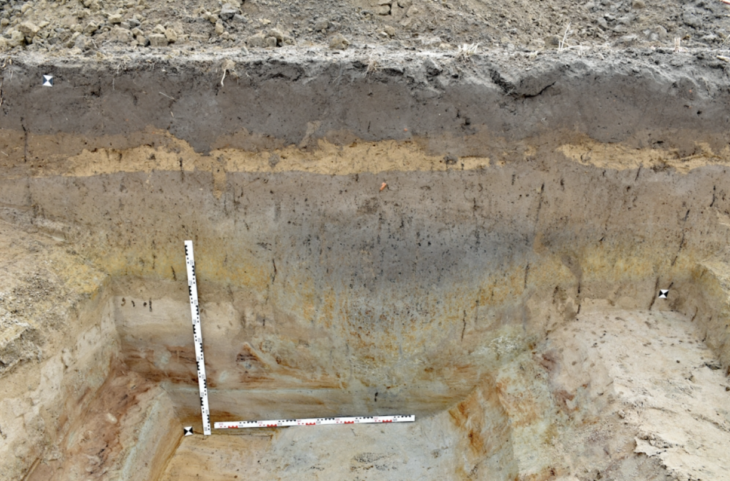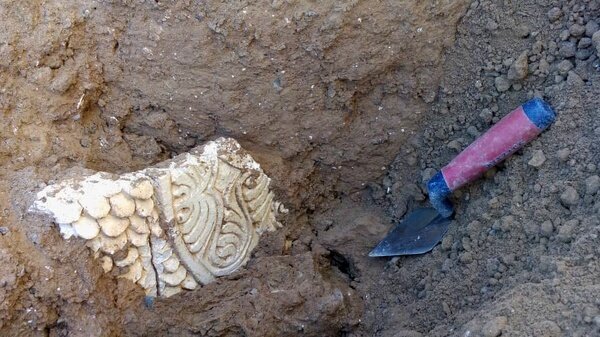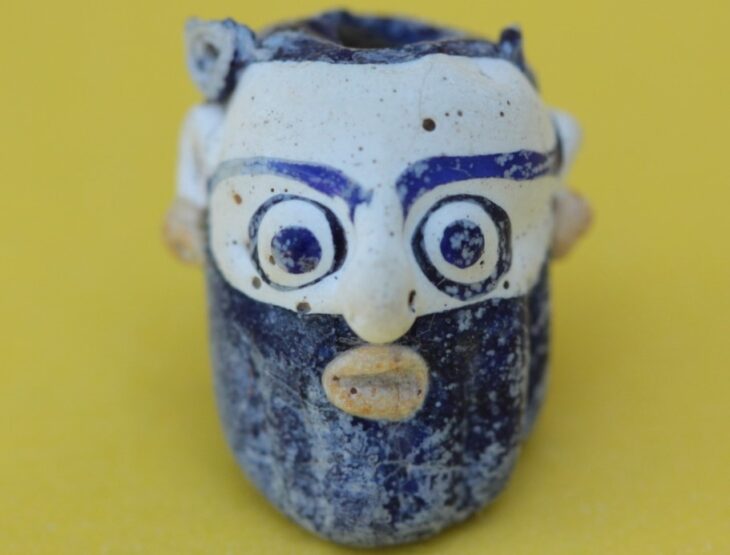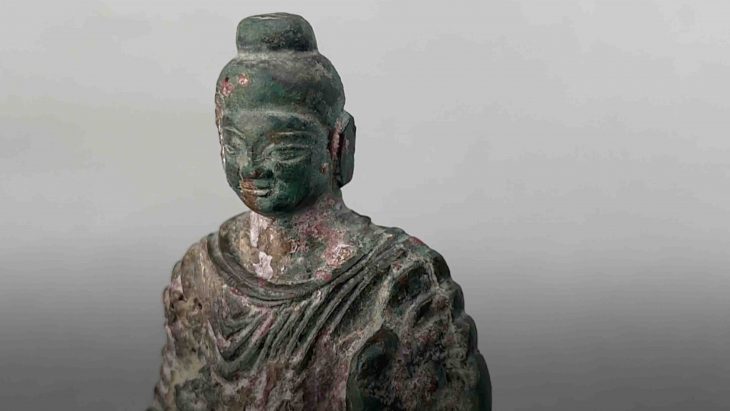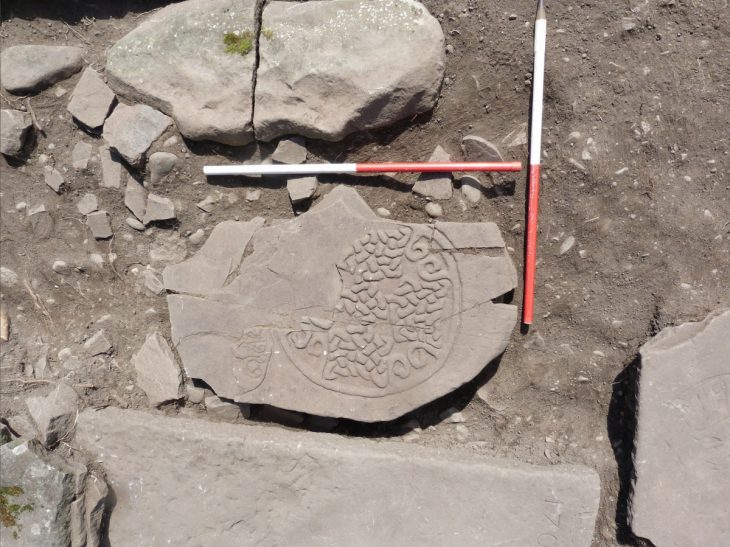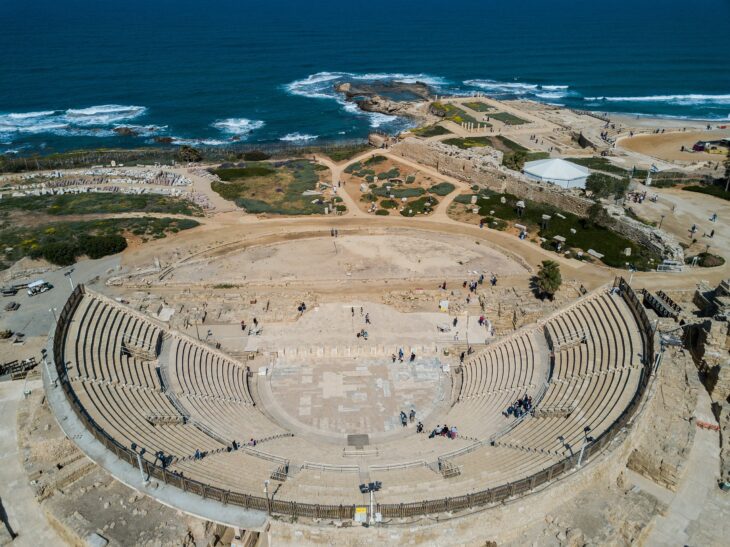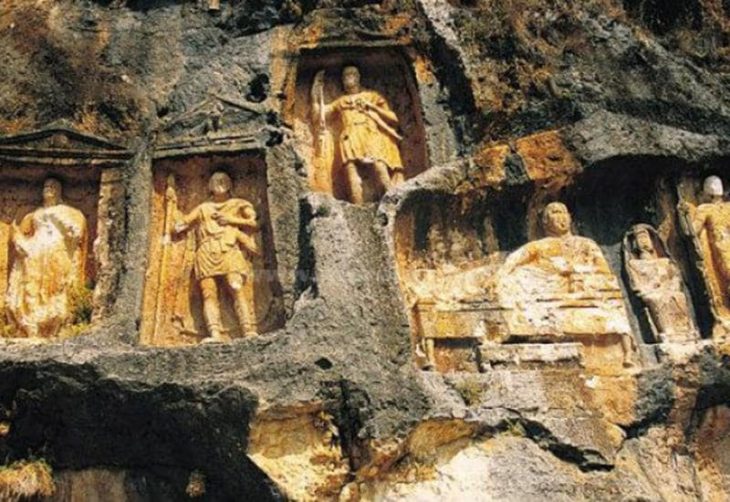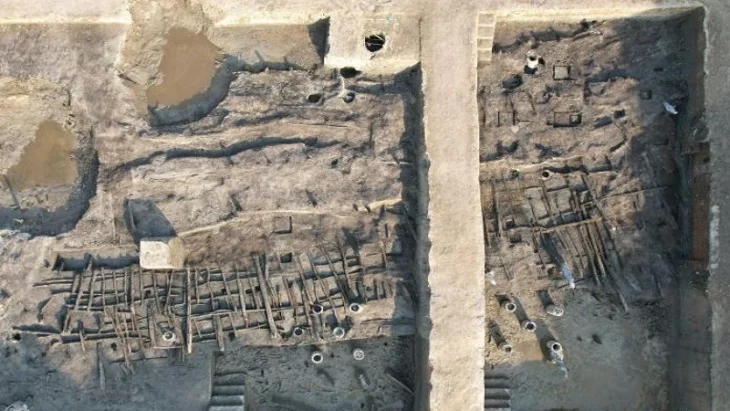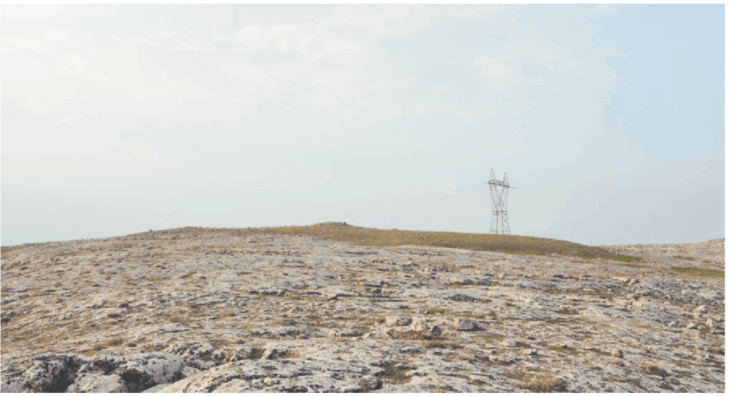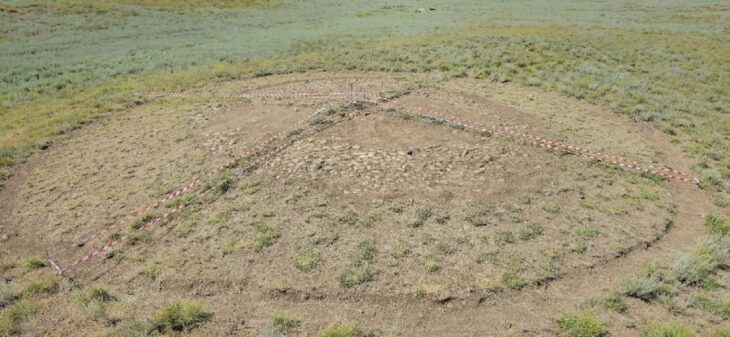Archeologists have uncovered remarkably preserved ‘fresco’ paintings on a wall in the banqueting room of a large house along Via di Nola, one of Pompeii’s longest streets.
In a recently excavated area of the ancient Roman city of Pompeii, archaeologists have discovered exquisitely preserved frescoes in the banqueting hall known as the “Black Room.” It’s being called the black room because it was painted black, likely to mask soot from oil lamps that would have burnt. Conversely, the room’s mosaic floor is comprised of more than a million tiny and intricately arranged white tiles.
It is the most recent amazing discovery from Pompeii, nearly entirely preserved beneath the ash and pumice left behind by Mount Vesuvius’ eruption in AD 79.
The two frescoes, which are painted on the hall’s walls, show scenes from Greek mythology and literature. One of the stunning artworks depicts Helen of Troy, a beautiful woman in Greek mythology, meeting Paris, the prince of Troy, for the first time. According to legend, the resulting elopement between the two sparked the Trojan War.
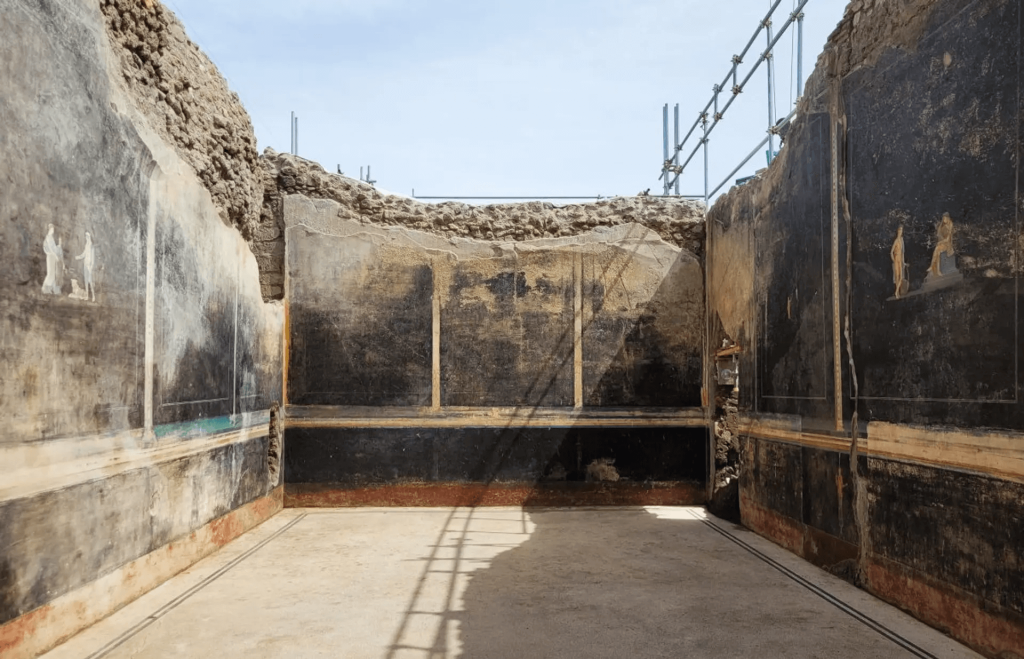
The second fresco depicts the Trojan priestess Cassandra seated, while the god Apollo, one arm resting on a lyre, attempts to seduce her. When she rejects the god, he dooms her to proclaim prophecies that will never be believed.
📣 Our WhatsApp channel is now LIVE! Stay up-to-date with the latest news and updates, just click here to follow us on WhatsApp and never miss a thing!!
The “Black Room” is only a portion of a larger home that archaeologists have been excavating for a year. It was discovered inside a residential and commercial district known as Region Nine. The house featured a garden and reception room; next door was a bakery where skeletons and a shrine had been discovered; next to the bakery was a laundry.
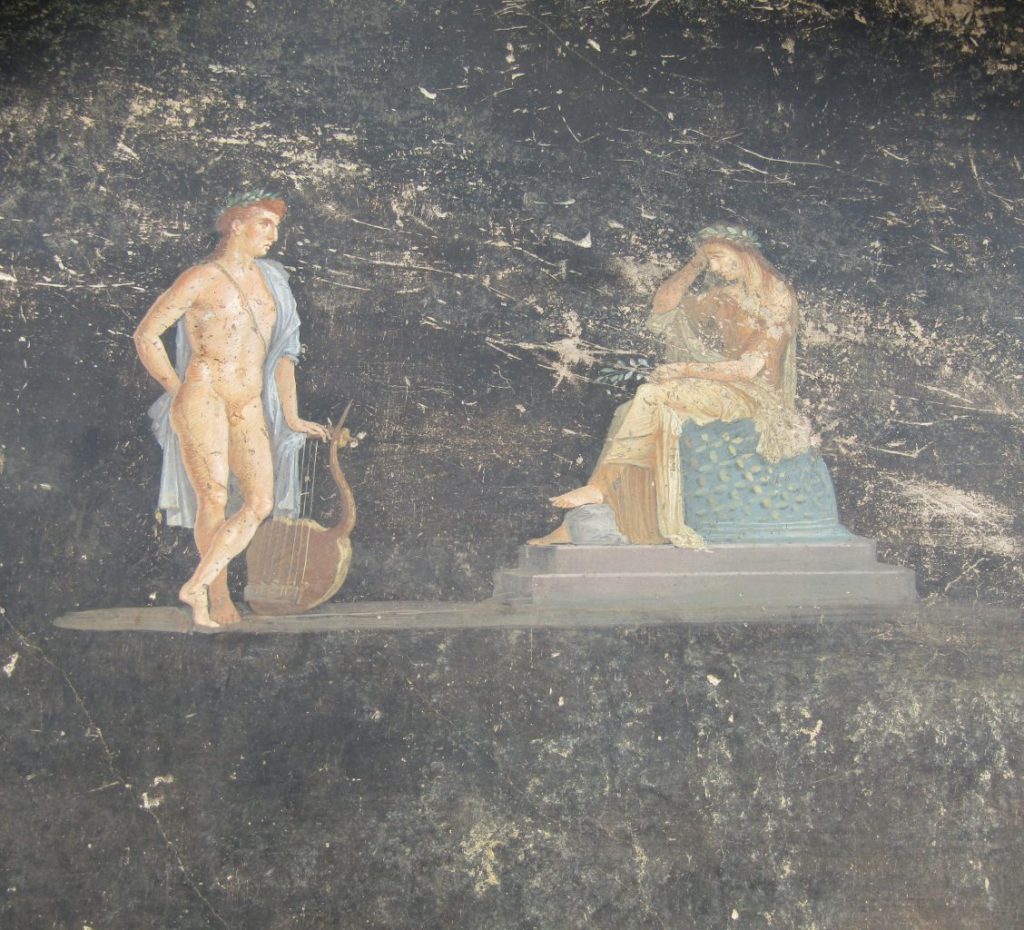
Archaeologists suspect that these three areas—the house, bakery, and laundry—were owned by the same person. They have also found the initials “ARV” on walls and millstones.
“We know who ARV is: he’s Aulus Rustius Verus,” the archaeological park of Pompeii archaeologist Sophie Hay told the BBC. “We know him from other political propaganda in Pompeii. He’s a politician. He’s super-rich. We think he may be the one who owns the posh house behind the bakery and the laundry.”
Archaeological Park of Pompeii
Cover Photo: Archaeological Park of Pompeii

